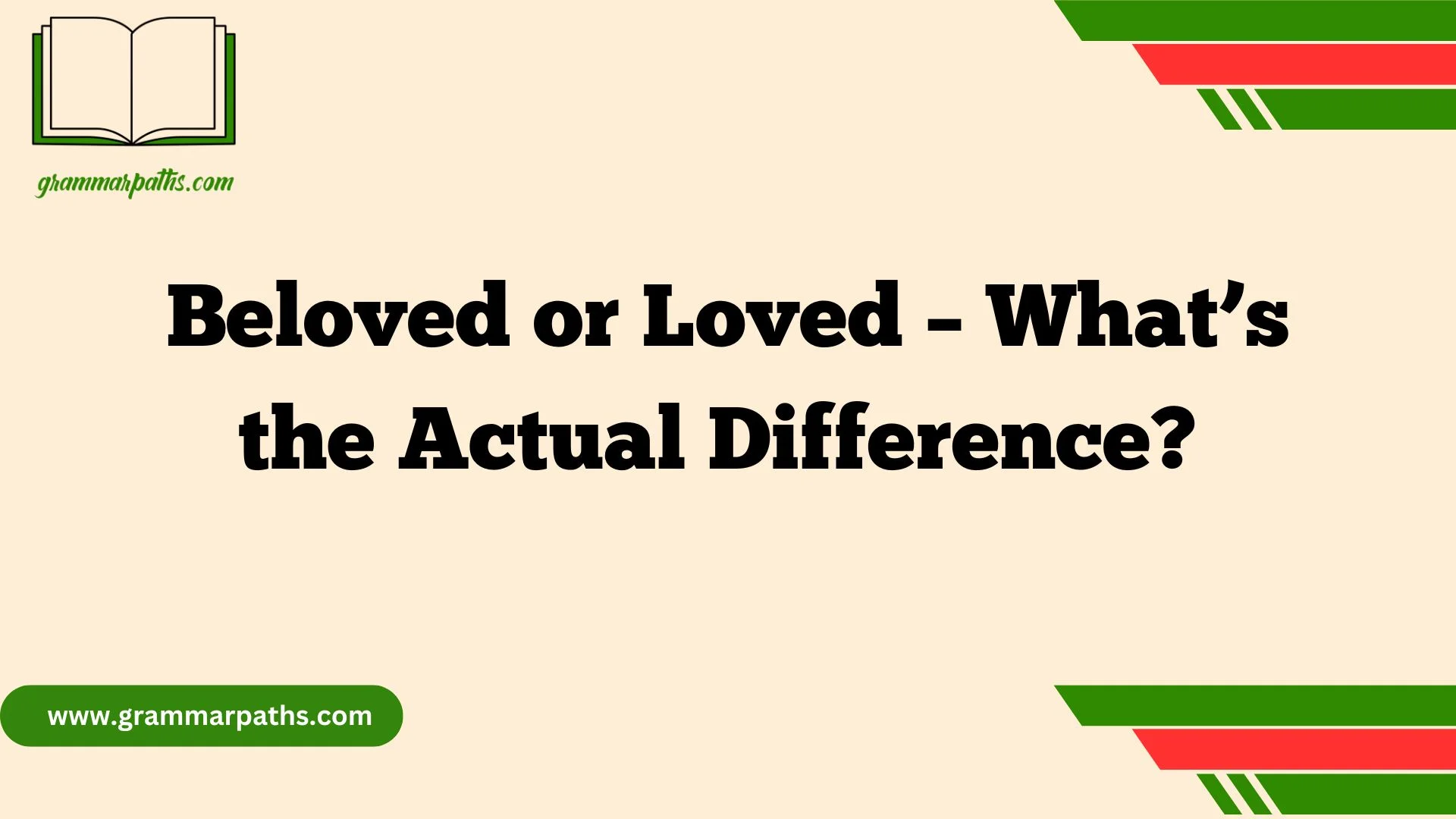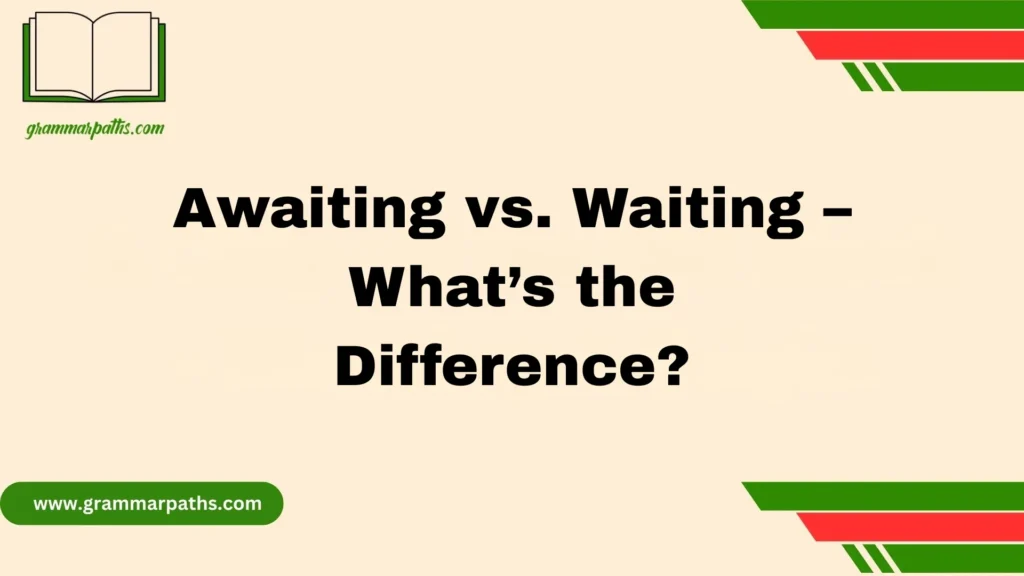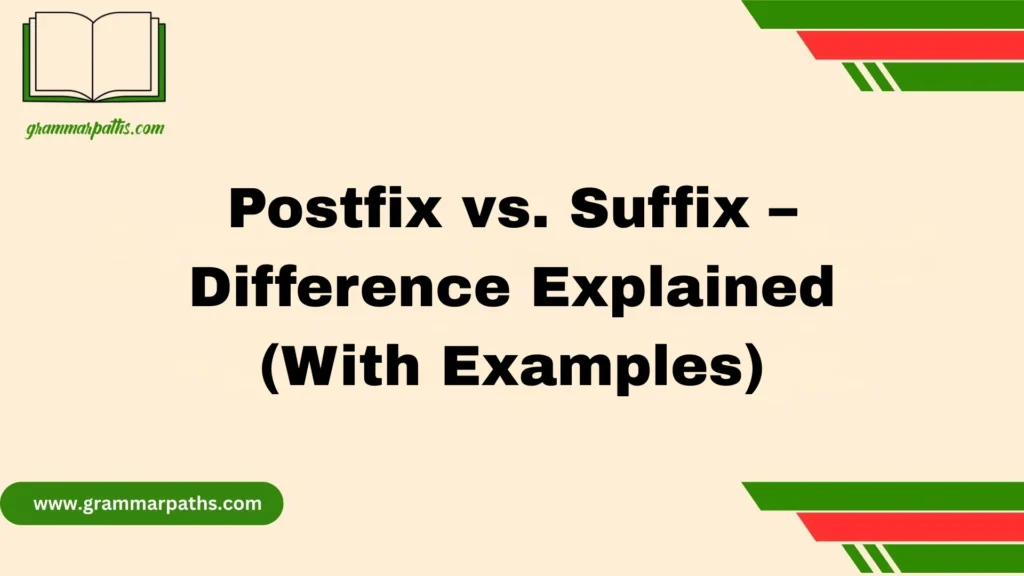Understanding the subtle difference between “beloved” or “loved” can help you express emotion with greater precision and depth. While both words refer to feelings of affection, fondness, and emotional attachment, they carry different nuances in usage, tone, and context. In everyday speech and writing, people often use them interchangeably, but each term holds a unique place in the English language.
The term “loved” is a more general, commonly used past participle of “love,” often referring to someone who is cared for or held dear. It can describe romantic, familial, or even platonic relationships. On the other hand, “beloved” is more formal, poetic, and enduring in tone. It suggests a deep, cherished affection and is often used in literary works, obituaries, or religious contexts to emphasize someone’s importance or revered status.
This article will explore the differences between beloved and loved, using real-life examples to clarify their usage. We’ll also discuss grammar rules, tone implications, and when to choose one word over the other. By the end, you’ll feel more confident using these terms with both emotional impact and grammatical accuracy.
Quick Comparison at a Glance
| Feature | Beloved | Loved |
| Part of speech | Adjective (rarely noun) | Adjective / Past participle |
| Tone and formality | Formal, poetic, ceremonial | Casual, everyday, straightforward |
| Typical contexts | Memorials, literature, vows | Conversation, letters, social media |
| Emotional nuance | Deep reverence, idealization | Honest affection, reliability |
| Sample phrase | My beloved grandmother | I loved our time together |
| Grammar note | Attributive adjectives only | Used in passive & adjectival phrases |
What Beloved Really Means
“Beloved” isn’t just “very loved.” It evokes depth—almost reverence. When you say “beloved,” you’re choosing words that resonate with warmth, idealization, and sometimes even longing.
- Connotation: It feels sacred or timeless.
- Tone: Soft, intimate, even slightly formal.
- Typical usage: You’ll see it in literature, old letters, memorials, religious texts, and wedding vows.
- She was a beloved teacher, whose lessons shaped generations.
- The village lay beneath beloved hills, full of history and memories.
What Loved Really Means
“Loved” is universal. It’s simple, adaptable, clear—even a bit raw. You say it every day.
- Meaning: To have affection or care for someone or something.
- Tone: Casual to moderate, very grounded.
- Usage: Found in everyday conversation, emails, song lyrics, social media—anything real-life.
- He loved her sense of humor.
- I loved that movie last night.
Tone & Formality Differences
“Beloved” drips with formality—almost a ceremonial weight. Meanwhile, “loved” stays grounded and conversational.
- Formal:
- Vows: “Dearly beloved, we are gathered…”
- Memorials: “Our beloved Jane…”
- Vows: “Dearly beloved, we are gathered…”
- Casual:
- Text message: “I loved our brunch!”
- Email: “You’re a loved part of this team.”
- Text message: “I loved our brunch!”
Practice tip: Match tone to context. Use “beloved” when aiming for emotional gravity; choose “loved” when staying grounded.
Grammar & Use in Sentences
- Beloved
- Only acts as an adjective.
- Commonly appears right before nouns: “my beloved friend”, “beloved homeland.”
- Only acts as an adjective.
- Loved
- Can be an adjective or past-participle verb.
- Example as adjective: “a loved one.”
- Example as verb: “He was loved by all.”
- Can be an adjective or past-participle verb.
| Comparison | “Beloved” use | “Loved” use |
| Adjective | She is my beloved sister. | This is a loved tradition. |
| Past participle | — | He was loved by everyone. |
| Attributive | My beloved cat purrs. | The loved painting was donated. |
Emotional Nuance & Depth
- Beloved goes deeper; it paints a picture of unconditional, unwavering affection—almost mythic.
- Loved keeps it real: sincere, everyday devotion without theatrical flair.
Analogy:
- “Beloved” = Shakespearean sonnet
- “Loved” = journal entry
Common Usage Pitfalls
- Don’t say “Hey buddy, you’re my beloved!” in casual conversation—it sounds stiff.
- Avoid writing “beloved” as a generic label on social media—it can feel forced.
- Watch redundancy like “loved and beloved tea.”
When to Use Beloved
Opt for beloved when your words call for emotional depth or ceremony:
- Funeral or memorial speech
- Wedding vows and dedications
- Historical or formal writing
- Religious texts (e.g., “Beloved children of God…”)
Rewrite example:
- Instead of: “My loved mentor…”
- Try: “My beloved mentor, whose guidance shaped me…”
When to Use Loved
“Loved” stays friendly, direct, and relatable. Great for:
- Conversations and texts
- Personal letters
- Describing past relationships: “I loved our time together.”
- Modern, clear writing: blogs, emails, social captions
Rewrite example:
- Replace “With beloved memories…” with “With loved memories…”
Real-Life Examples Comparison
| Context | Beloved Example | Loved Example |
| Tribute to parent | Our beloved mother, Julia,… | We loved our mom, Julia, for her kindness. |
| Romantic note | To my beloved, I pledge forever… | I loved spending every moment with you. |
| Mourning announcement | Beloved [Name] passed peacefully… | We loved Ted and miss him dearly. |
Analysis: “Beloved” sets a formal, elevated tone. “Loved” stays warm, simple, and natural.
Quotes from Literature & Culture
“Dearly beloved, we are gathered here…” (Wedding ceremony opening)
— Elaborate, ceremonial.
“I loved her against reason, against promise, against peace…” (War and Peace)
— Simple, emotional confession.
FAQs:
What is an example of beloved?
An example of beloved is: “She kept a photo of her beloved grandfather by her bed.” In this sentence, beloved means someone deeply loved and cherished.
What is the difference between beloved and much loved?
Beloved is more formal and emotional, often used in literature or heartfelt writing. Much loved is more casual and commonly used in everyday speech but carries a similar meaning.
When to use beloved?
Use beloved when expressing deep affection, especially in sentimental, poetic, or respectful contexts—like referring to a spouse, family member, or someone passed away.
Can we call someone beloved?
Yes, you can call someone beloved to show deep love or emotional attachment. It’s often used for romantic partners, close family members, or people you hold in high regard.
Is it better to love or be beloved?
Both are meaningful in different ways. Loving someone reflects your emotions and generosity, while being beloved means you are valued and cherished by others. Ideally, both go hand in hand.
Conclusion:
In summary, while “beloved” and “loved” both express deep feelings of affection and emotional connection, they differ in tone, formality, and context. “Loved” is more commonly used in everyday conversation to describe someone who is cared for or appreciated. In contrast, “beloved” carries a more poetic, reverent, and often timeless quality—frequently found in literature, tributes, and formal writing.
Choosing the right word depends on your intent. If you’re writing a personal message, casual note, or referring to common relationships, “loved” is usually the better fit. If you want to convey deep admiration, lasting respect, or solemn emotion, “beloved” adds a touch of elegance and depth.

Mia Rose is the passionate writer and founder of GrammarPaths.com, a resource dedicated to helping learners master English grammar, idioms, and writing skills with ease. With a deep love for language and years of experience in teaching and content creation, Mia simplifies complex grammar rules into clear, practical guides that readers can instantly apply.










